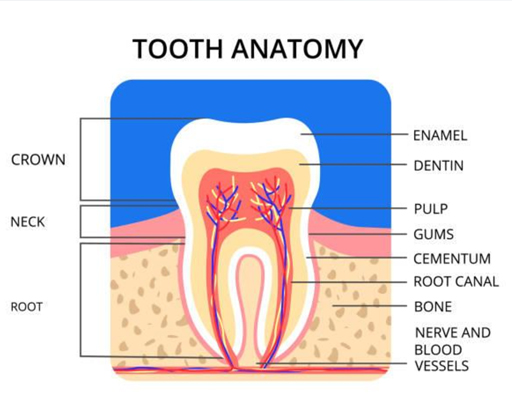What is Fluoride:
Fluoride is a natural mineral that occurs on Earth and is released from rocks into the environment, including soil, water, and air. its level in water varies depending on its source, and most water contains some degree of fluoride. However, while some groundwater and natural springs may contain high levels of this element, the majority of drinking water sources, including tap water, contain only small amounts. its presence in the environment is a result of both natural and human processes, such as the use of fluoride in water treatment and toothpastes.
The benefits of fluoride include:
- Prevention of tooth decay: Fluoride helps to remineralize and harden the enamel on your teeth, making them more resistant to decay caused by acid.
- Strengthening teeth: it helps to make teeth stronger and more resistant to mechanical damage, such as chipping or cracking.
- Treatment of sensitive teeth: it can reduce sensitivity in teeth caused by exposed or damaged dentin.
- Protection against gum disease: it can help to prevent inflammatory conditions of the gums, including gingivitis and periodontitis.

Community water fluoridation:

Community water fluoridation is a public health measure that involves the controlled addition of fluoride to a community’s drinking water supply. The goal is to reduce the prevalence of tooth decay in the community and improve overall oral health.
One of the main benefits of community water fluoridation is that it makes fluoride more accessible to people who may not have access to other sources of it such as fluoridated toothpaste or mouthwash. This is particularly important for low-income families and individuals who may not be able to afford these oral care products or who may not have access to a healthcare provider. Community water fluoridation can help level the playing field and ensure that everyone in the community has access to fluoride, regardless of their socioeconomic status.
Overall, community water fluoridation is an important public health measure that can help improve oral health and reduce tooth decay in communities that may not have access to other sources of fluoride. It is a cost-effective and safe way to help promote overall oral health.
It’s important to note that while fluoride is beneficial for oral health, it should be used in moderation. Too much fluoride can cause tooth discoloration and pitting, and in high concentrations, it can be toxic.
It’s also important to remember that while fluoride is a valuable tool for preventing tooth decay, it is not a substitute for proper oral hygiene practices, such as brushing and flossing regularly.

